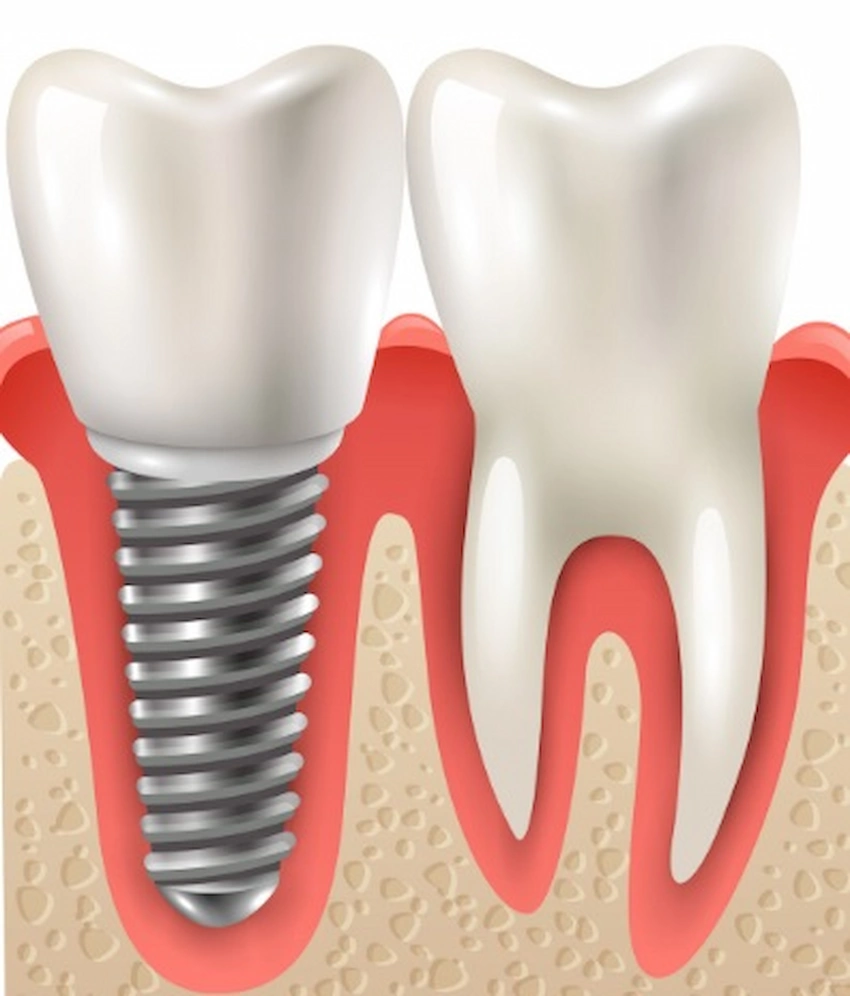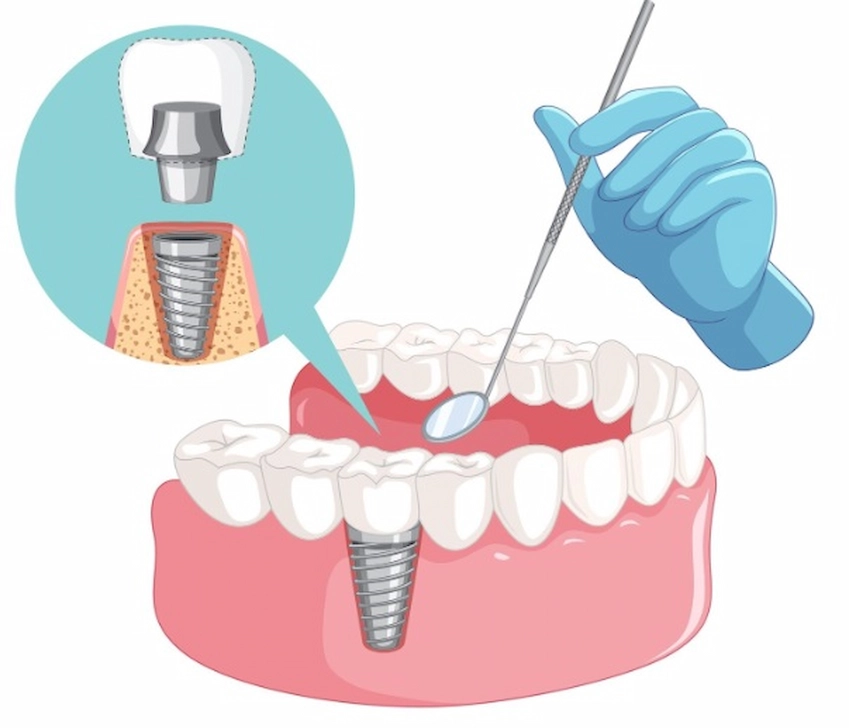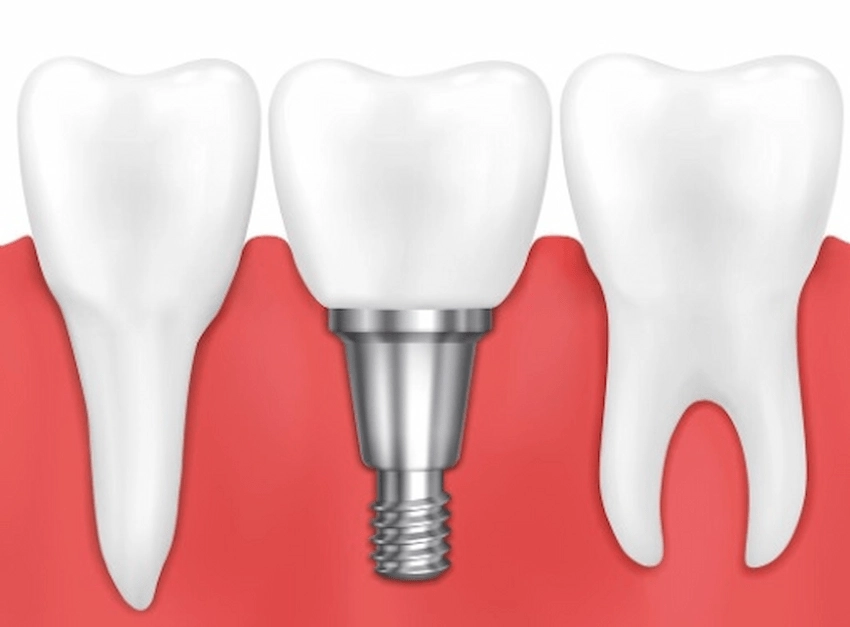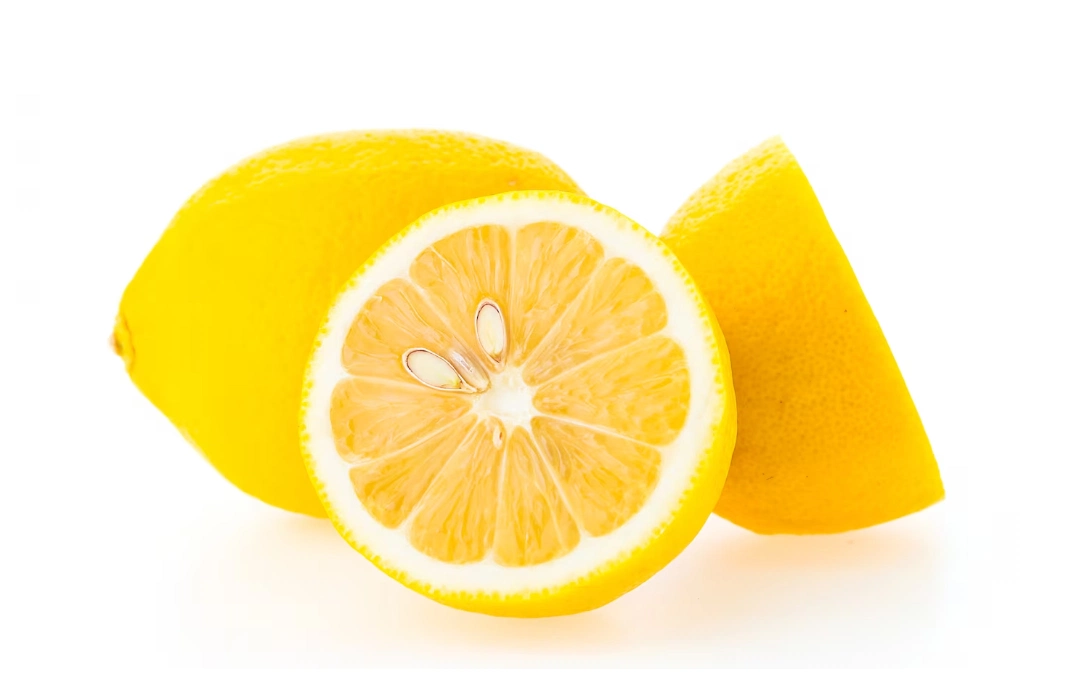🦷How Long After Dental Implants Can I Eat Normally?

Dental implants, being the most common method of tooth replacement, provide a durable and natural-looking choice. Many people though have a question about the period after the surgical procedure for returning to normal food intake. In the beginning, individual food is a necessity that will ensure the gum and place of the implant are in a good state of healing.
In this article, the different stages of the diet after the procedure of dental implants are described, starting from what you have to follow right after the surgery and ending with the point where regular and unrestricted food is allowed. Knowing this eases the task of the recovery process and encourages oral health.
Every stage of the post-implant food journey is of critical importance for recovery and treatment success. With an emphasis on post-operative dietary changes and the transition to a diet of harder foods, this part explains the key points of the recovery process.
The first thing to do after the operation is to relieve the pain and avoid postoperative risks. (x) As time goes by, the patient is advised to eat soft food first and then advance to the next level, which is the solid food stage. During this time, it is very important to keep the communication lines open with your body and make eating adjustments suitable to the comfort of your body and the healing status at that time.
Diet During the First 24-48 Hours Post Operation
On the first day and through to the second day immediately following the surgery of dental implants, it is of utmost importance to eat a diet that makes wounds heal faster and reduces pain. Patients are recommended to keep their water level up courtesy of water and at the same time take lukewarm drinks, avoiding hot drinks that can cause disturbance at the surgical site. It is also the period where semi-solid diets that do not need any chewing come into play.
Besides, one has to be careful not to go hungry or eat less nutritious food. This means that patients are advised to avoid hard foods, as this can make them feel pain or worse, the implants can be damaged.Because the surgery was immediately after, the right foods may really help to alleviate discomfort and, on the other hand, speed up the process of recovery. However, what are the foods that are better to eat in this case?
Now I’ll present to you a shortlist of food you may like to try during your recovery. However, it is important to note that these foods can also keep you hydrated thus making the healing process smoother. It, therefore, comes without saying that the recommended foods not only serve the purpose of faster recovery but are also a source of nourishment and comfort to you during this period.
Foods to Avoid
One of the best things you can do in the first 24-48 hours after surgery is to not eat some specific foods so that problems and pains that might normally occur after an operation can be easily prevented. Below, you will find a list of foods that are best avoided during this period as they can cause complications and discomfort.
It’s really unfortunate that a situation when such food as, for example, nuts or types of vegetables is so hard that those are able to break the implant, can hurt your health. Hot, as well as sharp, they have some more attributes like that and both can be a reason for pain. The same goes for when you try to consume the chewy foods, because this actually makes you exert more force in the process of chewing the food substance. However, frequent check-ups done by your healthcare provider will verify if pain and other wounds still trouble you.
Transitioning to Soft Foods (Days 3-14)

The post-operative period from days 3 to 14 after dental implant surgery is a very crucial time when it is essential to transition successfully to soft foods. As your swelling and discomfort start subsiding as part of the healing process, you will realize that you could include a wider variety of soft textured foods into your daily diet thus giving you an opportunity to enjoy variety. These foods classified as soft must be easy to chew and not be at risk of injuring your healing gums and tissues which set them apart as the most appropriate in this period.
Your dental surgeon will guide you on how you get the food you are supposed to eat during the healing period. All this is not to say that you should only eat soft foods but you have to stick to a balanced diet to provide your body with most of the nutrients it requires to recover completely.
It is advisable to stick to a balanced diet of proteins, vegetables, and grains much the same way we find in a healthy and balanced common meal; however, the key change is that these must be in a soft form. However, comfort is of utmost importance and always listen to your body, if any food leads to discomfort or pain; return to the soft food options until you feel ready to advance again.
Suitable Soft Foods
When it comes to selecting suitable soft foods, during the transition phase, it is essential to consider not just nutrition but also your comfort as well. As much as some foods are soft and smooth, they should also be high in nutrients and fit the description of comforting foods and this way you will be able to make your mind while choosing the following:
- Soft Cooked Vegetables: These include vegetables that are boiled or steamed up to the extent that they are soft without losing out on their essential nutrients like carrots, squash, or zucchini.
- Oatmeal: In a world full of soft grains oatmeal is the one that provides warmth, fullness, and nourishment for your body.
- Scrambled Eggs: While soft and easy to chew, these scrumptious easy-to-prepare little runny eggs are full of protein which is necessary for healing.
- Cottage Cheese: To add another dairy product, again easy to swallow down, soft, and containing a lot of calcium for your healing period.
- Polenta: A dish made from corn, it is smooth, and soft, and offers many variations in taste with just some seasoning or depending on the flavor.
Adhering to these soft foods allows you to gradually expand your diet while making sure that your healing process is most supported. Remember, the goal is to diversify your food intake within the soft food spectrum while providing your body with adequate nutrition to heal.
Foods to Avoid During This Phase
Even though soft foods are being introduced into the diet, it is also crucial to avoid certain foods that can hamper your recovery process. In commencing days 3 to 14 after the procedure, there are some foods that should be eliminated completely from the diet so that the success of the recovery process can have as little as possible; hence here are
- Spicy or Acidic Foods: These types of foods can lead to inflammation and excessive irritation at the site of the surgery.
- Sneaky Raw Fruits with skins: While garlic apple had raw melon, any unique oddities in bleeding and it. It can be highly improbable to jab, in fact, slip up, and jangle a little.
- Sustaining Tough Meats: Meats like steak or pork that require a great amount of chewing can be complicated for someone who has just had surgery and this type of chewiness should be if possible avoided.
- Snack, snackers Galore: crunchy foods like popcorn which can be difficult bits to chew in the mouth. The pressure of the impacted or damaged area may cause issues while it’s eating. Therefore being careful about what you eat at this time will help eradicate any behavior that could threaten your progress or the success of the surgery.
Asking the Hard but Solid Questions (8 On a Good Day)
When it comes time for these Week 3 and 8 solids or solid foods in between it is the critical point in the recovery progress after performing surgery for dental implants. For some cases post-op it is hard to establish a boundary between less and more, and patients are always likely to get back to the potentials of solid food intake too early on. They should initiate the procedure with those products that are easy to chew and easy to cut.
Core Elements of Starting Again
After such a kind of dental implant, given that the idea behind recovery is gradual, there are some basic rules to help make it go as smooth as possible. Start by applying these guidelines in the following weeks so that consuming other food types successfully is possible:
- Go with tender things: Although sure choices highly successful choice include birds that are cooked or fluff fishes like salmon other foods should be chosen which are less likely to cause cracking of any bone.
- Chop, Slice and Dice: Applying this method of preparing food can help to cut them to smaller bits to aid chewing and swallowing as well as to avoid the affected areas from confrontation with the pointed edges.
- Change Food Type Slowly to the Next: Make sure that in the panel of products every selection is addressed separately before subsequently ensuring consecutive changes in the making.
- Listen to Your Internal Segment: This’s fascinating if they’ve noted about similarities that occur either while swallowing or chewing any food or losing control preferably dropping utensil and refraining from using it momentarily if it will be necessary.
- Stay Hydrated: During the entire period of healing after undergoing a dental implant, always make sure that you’re drinking a lot of water. Water will promote digestion and also eliminate toxins from the body which may be harmful to the healing process. As a matter of fact, it’s advisable to drink up to 2 liters of water per day at the time in order to ensure that there’s enough fluid within the body to deal with whatever situation that may be encountered. It is commendable that one should keep this in mind as to how they will be integrating solid foods again after going through any surgery or treatment procedure.
This will help reduce the risks associated with solid food consumption by making sure that patients remain fully attentive to every little thing and do not overdo things unnecessarily to put themselves in more danger than is required.
Monitoring for Discomfort
The moment solid food is reintroduced after having been without it for a while, keeping track of any painful sensations or discomfort becomes very imperative. It will be very essential that when eating solid food samples you remain alert to all the sensations that your body sends out to other people.
Most of the time these sensations include pain which indicates that the body’s sensitive nature is not yet ready to handle a certain thing thus calling for a slow advancement into diet modification. Further to this, nausea can be an indicator that there are risks involved concerning the body system getting inflamed or as a result of improper recovery procedures taken while still taking liquids only diets by putting off masticating food so as not damage any healing tissues within the mouth area. It’s important during such instances that patients get
Tips for a Smooth Dietary Transition Post-Implant Surgery

The modification of your diet following your dental implant surgery is critical and requires special attention and care. Initially, read and follow your dentist’s instructions for the post-operative stage religiously as these give you the necessary information about how you will heal. Be careful while you slowly start adding different food starters but still keep an eye on any pain during eating.
Eating different kinds of nutrient-dense foods does not only help in the quick recovery, it also has other health benefits. Lastly, never disregard the essence of scheduling regular visits to the doctor; through these visits the healing of the wound can be monitored and you can receive diet advice that is specific to you.
Observance of Post-Operative Instructions
Your dentist will issue dietary, oral care, and activity level guidelines explicitly to prevent complications and guarantee the correct healing of your graft. Obeying the manual of instructions is beneficial since it will reduce the chance of infection and, in turn, allow the implant to heal more quickly.
Failure to observe post-operative aftercare could lead to setbacks which are painful and take longer to disappear. One needs to take post-care instructions very seriously because they are essential in the overall achievement of the dental implant.
The Significance of Regular Check-Ups
Your presence at regular follow-up appointments is undoubtedly part of the healing process after dental treatment which is implant surgery. Regular check-up visits will allow the dentist to keep track of the healing process by checking if the bone and implants have integrated. At the same time,
It gives you a chance to ask the dentist about discomfort or any challenges you have in your diet. Left in the hands of professionals, the introduction of certain foodstuffs that have been treated safely can be free of complications and maintain efficiency in oral hygiene. Follow-ups, in the end, are key to the success of dental implants in the long term.
What and When to Eat After a Dental Implant: FAQs
Have you just had a dental implant surgery? Now, this is highly crucial that you pay attention to certain nutritional requirements, so that you don’t face any troubles on your way to recovery. We have gathered some of the most common questions people usually ask when it comes to food intake after implant surgery that would make a definitive guide as well as help you get through this process smoothly and successfully. You can learn how to manage your post-surgery diet with ease.
First and foremost, during the first few hours after getting the dental implants, it is recommended
Immediately after dental implant surgery, it’s best to stick to soft, cool foods such as yogurt, smoothies, mashed potatoes, and soup. Avoid hot foods as they can irritate the surgical site.
You can typically begin eating solid foods about 3 to 5 days after surgery, once the swelling and discomfort start to subside. However, you should avoid chewing directly on the implant site for at least a few weeks.
Avoid hard, crunchy, or sticky foods like nuts, popcorn, chips, and caramel. These foods can put pressure on the implant site and may cause damage or dislodge the implant.
It’s best to avoid chewing on the implant side for about 2 to 4 weeks after surgery to allow the area to heal properly. Your dentist will give you specific instructions based on your individual recovery.
The best foods after surgery are soft, nutrient-rich options that are easy to eat and don’t require much chewing. Examples include smoothies, soup, scrambled eggs, and mashed vegetables.
You can usually return to your normal diet within 4 to 6 weeks after the dental implant surgery, depending on how quickly your gums and jawbone heal. Your dentist will monitor your progress to ensure everything is on track.
If you experience pain or discomfort while eating, it may be helpful to stick to softer foods or take smaller bites. If the pain persists or worsens, contact your dentist to ensure there are no complications.
It’s advisable to wait about 24 to 48 hours before consuming hot foods and drinks after surgery. Heat can increase swelling and cause discomfort during the early stages of recovery.
You can drink liquids like water, juice, and milk right after the surgery. Avoid alcohol and caffeinated beverages as they can interfere with healing and may irritate the surgical site.
Crunchy or hard foods should be avoided for at least 6 weeks after the surgery. After this period, once the implant has integrated into the jawbone, you can gradually reintroduce these foods, but be sure to chew on the opposite side of the implant.




